- Home
- Roger Taylor
The Fall of Fyorlund Page 10
The Fall of Fyorlund Read online
Page 10
Ali, martyred and misunderstood, read Dan-Tor. Now we know where we are. He moved forward again, the light of a nearby globe falling on his face. And reproachful, too.
‘Dan-Tor, you shouldn’t go away for so long. In spite of your ministrations, my health is so uncertain. I’ve burdened myself with too much too soon. My subjects do not – will not – understand. I work ceaselessly for their benefit, for their protection against treachery at home and abroad, but they harry me.’ His hands twitched pettishly. ‘Where were you?’ he said plaintively. Dan-Tor opened his mouth to speak but the King continued. ‘I felt so strong, so well, when you left. Like the old days. I’ll pick up my duties again, I thought. Take the country in a strong grip. Throw out these bleating Lords as we arranged. Lead my country into a new future, make it strong again. Then . . .’ He put his hand to his head. ‘Then my strength left me – just drained away – and the Lords wouldn’t accept my judgement. They defied me. You were away too long.’
Dan-Tor was weary of this monologue, this self-justification. The King had repeated it to him incessantly since his return from Narsindal. Deftly adjusting his long brown robe of office, he knelt down by the couch in an attitude of both subservience and personal concern for his suffering friend. He too must repeat himself.
‘Majesty, I accept your rebuke. But you know that I was away so long only because the strength of our enemies grows. A monstrous leader has arisen in Orthlund who rouses the people there to ambition and lust for your land and power. I tried to seize him but, with great cunning, he escaped and I had to leave his capture to my escort and return to you.’
A silence fell and the names of Eldric and Jaldaric floated unspoken between them. The King knew now that his impetuous action against Jaldaric had in some way probably jeopardized Dan-Tor’s second plan for the capture of this sinister Orthlundyn leader. Dan-Tor, however, knew that greater benefit would come from his not repeating this complaint, so he let the words remain unspoken, like a sick miasma hanging in the air.
‘This coming and going of your strength is the nature of the illness as we know too well, Majesty. You must be patient. You did indeed undertake too much too soon. It’ll be many days before you feel well again.’ Dan-Tor’s voice was forgiving.
The King screwed up his face peevishly. ‘Why didn’t you kill this . . . this leader, when you had the chance?’ he asked suddenly, almost as if he were anxious to receive Dan-Tor’s rebuke.
‘That wouldn’t have been expedient, Majesty. Such an open act would have brought the Orthlundyn down on us like rocks down a mountainside, and . . .’ Dan-Tor paused. Sow a little more doubt and uncertainty, he thought, it’ll always come in useful. He assumed a worried expression. ‘To be honest, Majesty, I didn’t value him at his full worth immediately. He’s subtle and crafty, and has woven himself deep into the hearts of the people over many years. When I realized who he was, and what he was doing, he was almost beyond my reach. It’s some measure of his cunning that he avoided my first trap.’
The King scowled at him and gestured dismissively. Then he drew a startled breath and his face contorted with pain. He held out a begging hand to his tall tormentor. Dan-Tor laid his own hand gently on the King’s forehead and then looked into his eyes. His manner was soft and reassuring: don’t be afraid; I’m here now, it said; all will be well.
He took out a small jewelled box from his robe and, without any apparent movement of his hand, it opened. The King clutched at his wrist feverishly. Dan-Tor delicately picked out a small tablet with his long fingers and, pausing for a cruel moment, placed it in the King’s mouth, now opened wide in anticipation like a newly hatched chick.
Almost immediately the King closed his eyes and leaned back with a relieved sigh, the worried lines disappearing from his face. Briefly Dan-Tor was reminded of the young man Rgoric had once been.
‘Sleep well, Majesty. When you awake, your pain will have gone and your strength will have returned.’
Dan-Tor sat by the sleeping King for a long time staring enigmatically at the now relaxed face. The fleeting vision of the young King had stirred old memories. It’s salutary, he thought, to be reminded from time to time who it is I’m dealing with. Curse this King as he may for being a weak and inconsistent tool in his hands, it would be unwise to forget that he was heir to generations of great leaders. A man to whom others of this independently-minded and formidable race had given loyalty without demur. A man who had led a great army to victory. A man of proven courage and skill in personal combat. A powerful man. And a powerful people. Their complete corruption was essential to His schemes, and could only be achieved slowly. Very slowly.
Dan-Tor longed for His deep, dark patience.
He knew that even now, after so long, his hold an Rgoric, though strong, was deceptive. It was deep, but it did not reach down into the essence of the man; at a level beyond the King’s awareness and beyond Dan-Tor’s reaching, he knew that the King’s old spirit still battled to throw off his domination.
One day, Majesty, he thought. It’ll probably kill you before it’ll submit any further.
Ironically, the contemplation of the long road ahead eased away the last of Dan-Tor’s anger at the King’s actions: there is time for many things on a long journey. He knew it would be fruitless to try to find out why the King had done what he had done. Was it some desire to please him? Some desire to be independent of him? Some vainglorious whim? All irrelevant though. The King himself had probably forgotten even the ostensible reason by now, burying it under a great mound of self-pity and recrimination. The play had been made, and no sleight of hand on his part could change it. The game had to be continued from Rgoric’s unexpected gambit. Now he must watch daily, hourly even, to see that no irreparable harm came of it.
The suspension of the Geadrol with the inevitable reaction of the Lords and the consequent arrest of four of the most senior; the displacement of the Lords’ High Guards by the Mathidrin – both were deeds far too premature and both had the potential to tilt the country into civil war. As for calling the Mathidrin his own High Guard . . . Dan-Tor closed his eyes briefly. But, equally, these acts would enable him to gather more power to himself, to claim sedition and treason as excuse for a surreptitiously increased repression of the people. The numbers of the Mathidrin could be covertly increased and those of the Lords’ High Guards reduced, and the same reason offered should comment arise.
A faint smile came to his long face. Perhaps a trial of Eldric and the others. That might prove an excellent opportunity for swaying the minds of the people. It would bear careful thought. Much could be salvaged if this were handled correctly. Possibly even progress made.
‘And Hawklan – Ethriss?’, came the thought.
The smile faded and his white teeth ground together. The King’s use of the Mandroc patrol to vent his spleen against Eldric’s family had been folly indeed. Who could tell what effect the Harmony of Orthlund would have on those creatures? The King knew the patrol only as an elite group of the Mathidrin and, while he and the Fyordyn could be persuaded to accept many things, armed and trained Mandrocs in his service would not be one for a long time.
Fortunately, he consoled himself, Aelang, though unable to defy the King, had had the wit to lead them secretly out of Fyorlund, so few, if any, should have seen them; and those few could be dealt with if necessary. But how would Jaldaric and his men have responded? And what of Hawklan?
Jaldaric would fight, surely? He would not yield to Mandrocs and strange liveried Guards. Shock alone would probably make him draw his sword. But Hawklan? If Jaldaric had obeyed his orders, then Hawklan would have been some way behind, being drawn by the threads that bound him to the girl. In which case he would have come upon the battle itself, or the remnants of it. And if Hawklan were Ethriss, what in His name would be his reaction to the sight of the Mandrocs or their handiwork? And the girl. She must surely be dead now. That alone might awaken him.
But I’m here yet, thought Dan-Tor. Ethriss isn’t aw
ake. The thought offered him little consolation as he remembered the terrible defeat he had suffered so long ago. He shuddered.
The King stirred. Dan-Tor laid his hand against the King’s forehead. ‘Rest, Rgoric,’ he said softly, hypnotically. ‘All’s well. I’ll shoulder your burdens again.’
But forbid it as he might, his mind wandered back out along the Pedhavin Road, teasing through the awesome possibilities that might have been set in train there. So preoccupied was he with this ancient highway that he did not hear the chamber door open and close.
He started abruptly as a hand touched his shoulder.
Chapter 11
Sylvriss, Queen to Rgoric, was the daughter of Urthryn, the Ffyrst of Riddin.
The Riddinvolk had no time for kings and rulers and such-like, priding themselves on their independence and practicality. But, as befits a practical people, they would always look to one among them for direction and advice from time to time – a first among equals. Such was Urthryn, and had been for many years.
His daughter bore the stamp of the exceptional personality that had placed him in this position. Black-haired, with dark brown eyes, she had an almost tangible presence and was universally loved by the Fyordyn.
Dan-Tor hated her roundly.
‘I’m sorry I startled you, Lord,’ she said softly, looking down into his alarmed brown face. ‘I didn’t want to waken the King.’ Her voice had the characteristic sing-song lilt of the Riddinvolk. It grated on Dan-Tor’s ears.
Angry at his racing pulse, he stood up creakily and bowed. ‘I was lost in thought, My Lady. I didn’t hear you enter. I was pondering how best I might help His Majesty. His illness is so intractable. Each time I think I’m near success it slips away.’
Sylvriss nodded. She had heard the lie and its variations over many years, but understood all too well the folly of arguing with Dan-Tor or drawing her husband away from his ministrations.
Several times in the early years of their marriage, when she had been more naive and Rgoric more robust, she had persuaded him to abandon Dan-Tor’s potions and medicines, seeing they were doing him little good and sensing instinctively that they might even be the cause of his condition. Dan-Tor never objected other than with a light gesture of resignation and a look of sad inevitability on his long face. On each occasion the King had improved for a little while, then relapsed suddenly into an even more serious condition, leaving Sylvriss no alternative but to seek Dan-Tor’s help. It had been a bitter lesson for the young bride to learn, and had cost her many lonely tears.
Over the years she had been forced to stand by almost helplessly as Dan-Tor’s influence over her husband and the country grew and grew, like a creeper choking a great tree while apparently giving it an infusion of fresh new life. But she was her father’s daughter, a rider in the Muster – had she not ridden as a messenger when only a child in the latter days of the Morlider wars? Such a person could not easily yield the field, but neither could she rail futilely against what was seemingly inevitable. She slowly accepted the reality of her position but resolved to fight Dan-Tor with such weapons as she had. And Dan-Tor knew it, though neither angry words nor deeds ever passed between them.
Riddin lay to the south of Narsindal and was readily accessible from that land only through the bleak and awful Pass of Elewart. If the Riddinvolk could be corrupted and the Muster rendered impotent and ineffective, or better still, if they could be turned into allies, then the Pass could be used and His forces could move down through Fyorlund, Orthlund and Riddin, without fear of attack on their flanks, or threat to their lines of supply as they plunged deeper into the south.
It was for this reason that Dan-Tor had engineered the marriage of Rgoric to the Ffyrst’s daughter, it being his hope that this would increase his influence in Riddin and enable him to sow the seeds of corruption there, as he had so successfully done in Fyorlund. The marriage of a sixteen-year-old girl and a much older – soon-to-be-ailing – man should have provided ample opportunity for his creative talents. But he had miscalculated seriously. Despite the differences in their ages and backgrounds, Rgoric and Sylvriss fell deeply in love, and formed a bond that would be forever beyond his machinations.
Though the true horror of the man was beyond any mortal’s measure, it is probable that even before she came consciously to oppose Dan-Tor, Sylvriss sensed him for what he was, for subtly she sowed distrust in her father’s mind against this ‘long streak of smiling cunning’.
Urthryn had been concerned at first by such references in his only child’s letters, but had taken due note. He knew, after all, that his daughter was not given either to foolishness or malice, and that having a king rule over a country, fine man though he might be, was a sure way to attract all manner of queer folk. Still, in addition to her soft abuse of Dan-Tor, her letters told also of her love for her husband, so Urthryn contented himself with that in his lonelier hours.
Whenever Dan-Tor visited, which was often at first, Urthryn gave him rather cloddish courtesy and listened to his advice with a look of bewildered strain on his face before agreeing to ‘think on it – when I get time’. When Dan-Tor left, Urthryn consigned the advice to the winds.
Thus, as Sylvriss had had to accept the growing influence of Dan-Tor over her husband, so Dan-Tor had to accept that Riddin was, in some way, being kept beyond his reach by this young woman. More galling, however, and potentially more serious, his underestimation of the love of Sylvriss and Rgoric would mean that his control over Rgoric would need constant vigilance. The corruption of the Fyordyn could not be let slip.
Sylvriss knelt down by her husband and took his hand.
‘He’ll be asleep for some time,’ said Dan-Tor. ‘He was in pain and very disturbed.’ He gazed down at the black hair of his unspoken antagonist.
As if aware of his scrutiny, Sylvriss turned, and smiling up at him, said, ‘Thank you, Lord. I’ll sit with him now. You may go. You look tired. I’m afraid Rgoric’s blunderings on top of your long journeying may prove too much for you.’
From a lesser person there would have been a sarcasm in such a statement that Dan-Tor could have relished, but there was a genuine compassion in her voice that struck him like a physical blow. It was a constant quality in her and he could not understand it. She opposed him even though she knew she must lose. She must surely hate and fear him. But there was always this . . . this . . . pity? He stepped back involuntarily and then disguised the movement as part of his withdrawal. He bowed, showing gratitude on his face. He intended to thank her for her concern, but the words stuck in his throat. ‘You must not stay too long, My Lady,’ he said. ‘Or you, too, will be exhausted.’
Sylvriss did not reply, but smiled faintly. It was in her smile that the strain of the years told. As she turned her attention to her husband again, Dan-Tor watched her from the doorway, the memory of the smile lingering.
I could expunge you at my whim, woman, he thought, unconsciously echoing his Master. But this way was better. Her suffering would be long and terrible, and made all the worse because it would be for someone else’s pain, not her own. You’ll carry a burden beyond your imagining before we’re finished, woman. So it would be with everyone who opposed His will.
Dan-Tor closed the door behind himself gently and turned to face a twitching Dilrap. He watched coldly as the secretary executed a cadenza of flutters and jerks prior to delivering his message.
‘Lord . . .’ Eventually, ‘A Captain of the . . . King’s High Guard has requested an audience with you. He says it’s urgent. Something about a prisoner.’
Dan-Tor’s eyes flickered briefly. ‘Where is he?’ he demanded.
‘He’s been put in your ante-chamber. He’s been there for some time.
‘Why didn’t you find me earlier, Honoured Secretary?’ Dan-Tor’s voice was quiet but its tone was peculiarly alarming and there was another small spasm which Dilrap could only still by seizing the front of his robe in both hands and holding them firmly against his chest.
&n
bsp; ‘Lord, you weren’t in your chambers, Lord, and no one knew where you were.’
Dan-Tor did not reply. ‘This Captain has a name?’ he asked. Dilrap’s hands fluttered momentarily, like plump butterflies. He did not like these uncouth and arrogant Guards. Dealing with them always upset him. ‘Urssain, Lord,’ he said finally.
Dan-Tor grunted and nodded dismissively. Dilrap bowed and wobbled off down the high arched corridor, deftly drawing in his robe for the protection of the many ornaments that lined his path. Dan-Tor’s still, lank frame stood watching him for a moment and then turned and moved in the other direction.
Urssain. With a prisoner. A faint hope sprang within him, but he quelled it. Soon he would have a real measure of the damage the King had wrought.
Chapter 12
Urssain, travel-stained and with his right arm in a sling, looked round enviously at the luxuriously appointed chamber he had been shown into. Everywhere were objects and furnishings of a quality which indicated the wealth he aspired to. And the power.
The Mathidrin had been trained secretly in Narsindal and in the further reaches of Fyorlund. They were recruited from the malcontents and misfits that any ordered society breeds, however benign its government, though there were a few kindred spirits who had travelled from far distant lands. The darker traits of all had been assiduously cultivated, in the King’s name, under the covert direction of Dan-Tor.
The move into Vakloss and the displacement of the traditional High Guards had been the fulfilment of a promise to them and a token that they had joined a winning side. Men began to see new vistas opening before them, and ambition grew apace. Fertile ground for such as Dan-Tor.
But city work was new to them and their harshness and arrogance had not endeared them to the people. Reactions ranged from stony politeness to outright abuse and anger, although a growing taint of fear was beginning to colour almost all responses.
In the Palace, the tension was at its most marked. The many Palace servants and retainers made little effort to disguise their contempt for these loutish newcomers, although one or two might grudgingly concede the quality of their discipline.

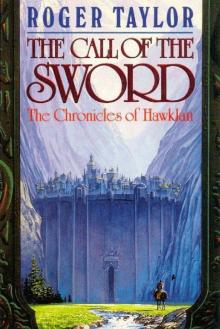 The call of the sword tcoh-1
The call of the sword tcoh-1 Farnor
Farnor Into Narsindal
Into Narsindal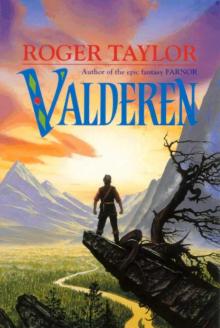 Valderen ft-2
Valderen ft-2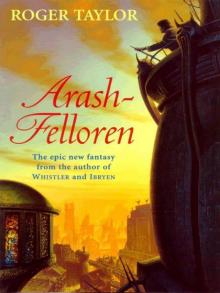 Arash-Felloren
Arash-Felloren The Return of the Sword tcoh-5
The Return of the Sword tcoh-5![Ibryen [A sequel to the Chronicles of Hawklan] Read online](http://i1.bookreadfree.com/i1/03/26/ibryen_a_sequel_to_the_chronicles_of_hawklan_preview.jpg) Ibryen [A sequel to the Chronicles of Hawklan]
Ibryen [A sequel to the Chronicles of Hawklan]![The Call of the Sword [Book One of The Chronicles of Hawklan] Read online](http://i1.bookreadfree.com/i/03/24/the_call_of_the_sword_book_one_of_the_chronicles_of_hawklan_preview.jpg) The Call of the Sword [Book One of The Chronicles of Hawklan]
The Call of the Sword [Book One of The Chronicles of Hawklan]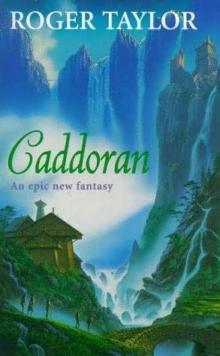 Caddoran
Caddoran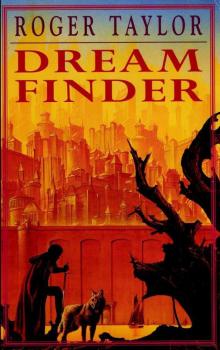 Dream Finder
Dream Finder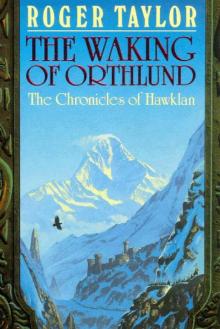 The Waking of Orthlund
The Waking of Orthlund Dream Finder cohs-1
Dream Finder cohs-1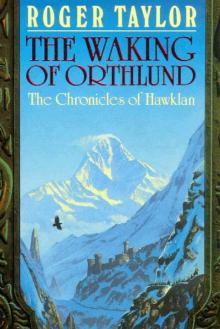 The waking of Orthlund tcoh-3
The waking of Orthlund tcoh-3 The Call of the Sword
The Call of the Sword The fall of Fyorlund tcoh-2
The fall of Fyorlund tcoh-2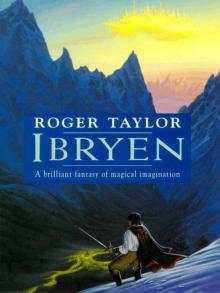 Ibryen
Ibryen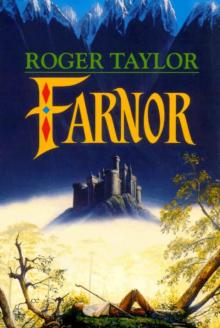 Farnor ft-1
Farnor ft-1 The Return of the Sword
The Return of the Sword![Into Narsindal [Book Four of The Chronicles of Hawklan] Read online](http://i1.bookreadfree.com/i2/04/06/into_narsindal_book_four_of_the_chronicles_of_hawklan_preview.jpg) Into Narsindal [Book Four of The Chronicles of Hawklan]
Into Narsindal [Book Four of The Chronicles of Hawklan]![Valderen [The Second Part of Farnor's Tale] Read online](http://i1.bookreadfree.com/i2/04/05/valderen_the_second_part_of_farnors_tale_preview.jpg) Valderen [The Second Part of Farnor's Tale]
Valderen [The Second Part of Farnor's Tale]![The Fall of Fyorlund [Book Two of The Chronicles of Hawklan] Read online](http://i1.bookreadfree.com/i2/04/08/the_fall_of_fyorlund_book_two_of_the_chronicles_of_hawklan_preview.jpg) The Fall of Fyorlund [Book Two of The Chronicles of Hawklan]
The Fall of Fyorlund [Book Two of The Chronicles of Hawklan] Into Narsindal tcoh-4
Into Narsindal tcoh-4 Whistler
Whistler![Whistler [A sequel to The Chronicles of Hawklan] Read online](http://i1.bookreadfree.com/i2/04/12/whistler_a_sequel_to_the_chronicles_of_hawklan_preview.jpg) Whistler [A sequel to The Chronicles of Hawklan]
Whistler [A sequel to The Chronicles of Hawklan] The Fall of Fyorlund
The Fall of Fyorlund![The Waking of Orthlund [Book Three of The Chronicles of Hawklan] Read online](http://i1.bookreadfree.com/i2/04/11/the_waking_of_orthlund_book_three_of_the_chronicles_of_hawklan_preview.jpg) The Waking of Orthlund [Book Three of The Chronicles of Hawklan]
The Waking of Orthlund [Book Three of The Chronicles of Hawklan]